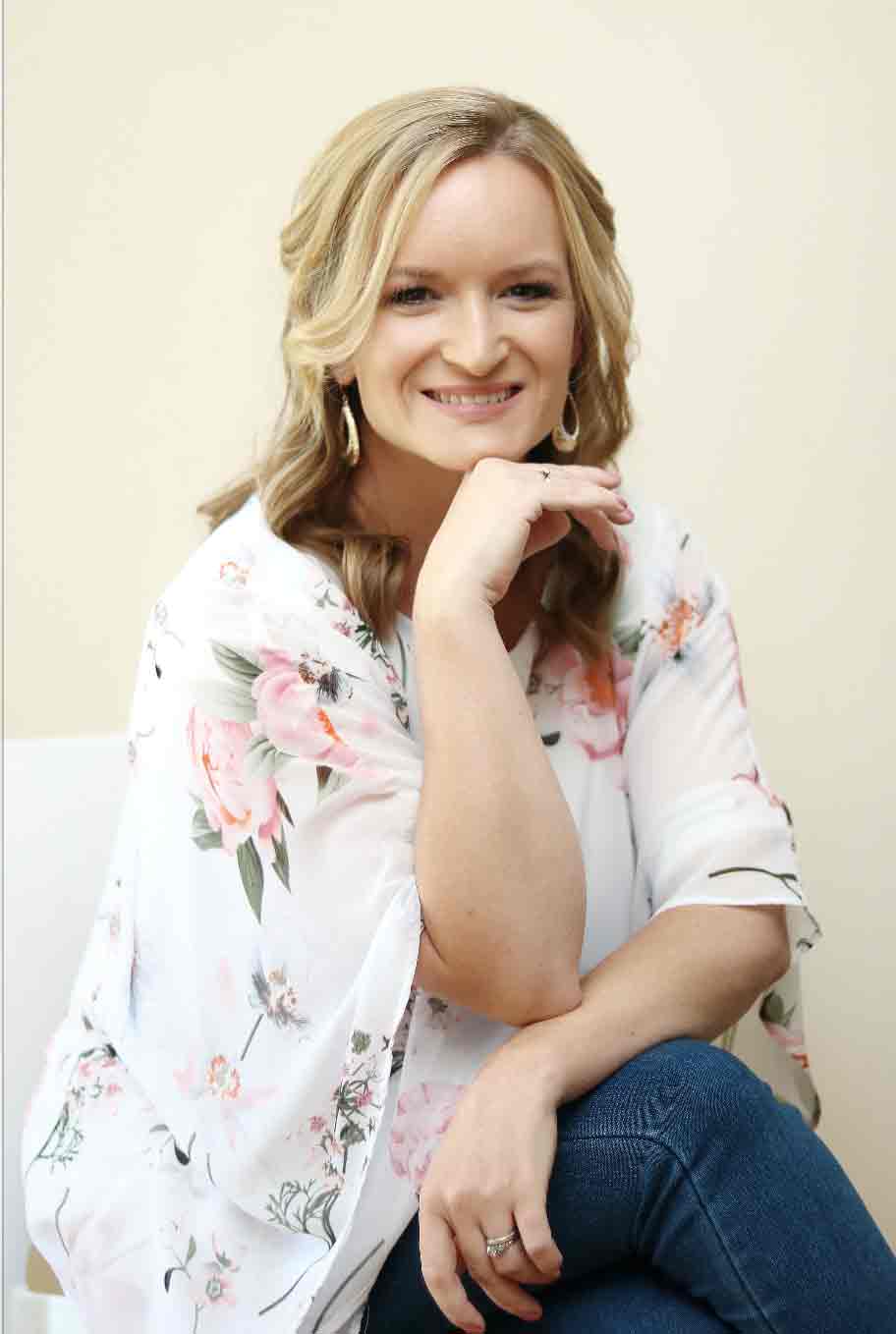

MEGAN PETSCHEL
Occupational Therapist

JULIE MONSON
Occupational Therapist
Using a bouncer seems like the perfect solution to give your arms a break from rocking whilst trying to get your baby to sleep. They are smaller and more compact than a baby swing which makes them easier to move around from room to room with you. Whilst your baby may look snug and comfortable in the bouncer while they are sleeping, is it safe for them?
It is strongly advised that you do not let your baby sleep in a bouncer. The American Association of Paediatrics (AAP) maintains that the safest place for your infant under the age of 12 months to sleep is on a flat and firm surface with no loose items nearby. A bouncer does not provide this safe space for your baby to sleep.
Your newborn requires up to 17 hours of sleep and an older baby relies on between 12 to 16 hours of sleep a day. The most important part is the quality of sleep they get. The biggest contributing factor to the quality of sleep is where they sleep rather than how much.
Despite the experts indicating that it is not safe for your baby to sleep in a bouncer, there may still be some questions regarding a bouncer.
Is it safe for me to put my baby to sleep in a bouncer?
Allowing or encouraging your baby to sleep in a bouncer can be dangerous and lead to devastating outcomes. These include:
- Positional asphyxiation
- Accidental suffocation
- Increased risk of SIDS

There are a few factors which contribute to the above concerns. An infant's neck muscles are only able to adequately hold up their head around the age of 3 months when they are properly supported.
By 6 months of age, their neck muscles are able to support their head sufficiently and allow them to turn their head from side to side. The reduced muscle control and strength in a baby’s neck between 0 to 4 months means that their heads can easily flop forward in a bouncer.
This can lead to their airways becoming obstructed as they do not have the strength to lift or turn their head.
Read our article on Safe sleeping positions by age
Can a baby sleep in a bouncer overnight?
There is a significant risk associated with letting your baby sleep in a bouncer overnight. This is largely due to the fact that parents are not able to monitor their infant throughout the night to ensure that their heads do not flop forward or turn into a position which they are unable to get out of.
Whilst it may be the only place you are able to get your baby to fall asleep in, the experts suggest that you break this habit as soon as possible. They recommend that if your baby falls asleep in their bouncer, you gently pick them up and relocate them to their cot which has a firm and flat surface for them to safely sleep on.
It may result in your baby waking up and taking a while to resettle but moving them is important so that they get used to their sleeping environment and it stays constant.

Is sleeping in a bouncer bad for a baby?
Sleeping in a bouncer or spending a significant amount of time in it during the day can contribute to "Container Baby Syndrome". This syndrome refers to a baby who spends a large portion of their day in some type of “container” such as a bouncer, carseat, swing, bumbo seat or stroller to name a few.
These items limit your baby from supporting their own head, engaging in tummy time, sitting independently, moving around and changing positions which are all crucial to their development. Allowing your baby to move assists them in strengthening important muscles which are needed for rolling, sitting, crawling and walking.
Along with the negative impact on development, there are also physical implications. Spending a prolonged amount of time in a bouncer places constant pressure on the back of their skull which can lead to a deformity known as Flat Head Syndrome.
This requires your baby to wear a helmet for an extended period of time to correct the shape of their skull. It can also contribute to your infant developing torticollis which is when the muscles on one side of their neck are too tight and they struggle to turn their head to one side.
Can a baby sleep in a bouncer during the day?
Allowing your baby to nap in their bouncer during the day can make getting them to sleep in their cots at night more challenging. They may become used to and reliant on the constant movement they receive which makes the transition to a firm and flat surface difficult.
Should you allow your baby to sleep in their bouncer for a nap, it is important that they are consistently supervised by an adult to ensure that their airway is not obstructed by their head falling forward.

How long can babies sleep in bouncers?
Bouncers are not intended to be used as a sleeping device for your baby. Therefore there are no guidelines regarding how long your infant can sleep in their bouncer for.
There is also no set recommendation with respect to the amount of time your baby spends in their bouncer. The average time which is suggested by resources ranges from 15-30 minutes as the maximum amount of time you should leave your baby in their bouncer per session.
Does a baby bouncer help with colic?
A baby who struggles with colic can be emotionally and physically exhausting for a parent. Colic refers to babies under 4 months of age who cry excessively for no apparent reason for more than 3 hours a day. There is no known cause of colic and whilst it does not last forever, it can be overwhelming.
Personal experiences from various moms have indicated that the bouncing action of a bouncer can help calm stomach pain and assist in releasing gas bubbles faster which may help with the crying.
If acid reflux is a contributor to your baby’s colic, then a bouncer may not be the best choice. This is because the position that the bouncer places your baby in increases the amount of pressure on their stomach, which can make the reflux worse.
Can you bounce a baby too hard in a bouncer?
There is limited scientific research on whether bouncing your baby too hard in a bouncer can contribute to Shaken Baby Syndrome.
Although it is not a frequently reported as a main concern when using a bouncer, there are certain precautions one should take.
- By ensuring that the straps on the bouncer are secure and used as indicated by the manufacturer as well as following the user guidelines provided with the bouncer, the risk of bouncing your baby too hard is reduced
- Another important factor to consider is the amount of time that you bounce your baby in the bouncer for. The general recommendation is not to bounce them longer than 15 minutes as their heads and necks are still weak and they have less ability to resist the sudden changes in direction.
- Whilst bouncing your baby, make sure that their head consistently rests against the back of the bouncer and does not lift up and fall back down when bouncing.
- It is advised not to leave your baby unsupervised whilst in a bouncer or with someone who could accidentally bounce them too hard (such as a younger sibling).
When can a baby start using a bouncer?
Most manufacturers indicate that a bouncer can be used from birth. However, they strongly encourage reading the manual provided with the bouncer and ensure that the bouncer is correctly set up for your baby’s age.
Another important aspect to consider is when to stop using the bouncer. The clearest indication of this is to stop using it when your infant is able to sit independently which is usually around 6 months of age. This is because they are able to tip the bouncer over when they sit up on their own.

What are the benefits of using a bouncer?
There are a number of benefits to using a bouncer including:
- Bouncers are more affordable when compared to baby swings.
- They are lighter and more compact which makes it easier to move them around with you.
- They can provide much needed relief to a parent’s arms or allow them a few minutes to do chores without a baby in their arms.
- The rocking motion of a bouncer perpetuated by your babies kicking can be soothing as well as entertaining for them.

What are the down sides of using a bouncer?
There are also a number of downsides to bouncers including:
- They can contribute to Baby Container Syndrome if your infant spends too much time in it.
- If your baby naps in the bouncers, they may begin to make unhealthy sleep associations with a bouncer. This makes it difficult when they need to learn to sleep in their cot once they have outgrown the bouncer.
- They may restrict your baby from being able to engage with their environment and interact with their toys.
- A study conducted by the AAP indicated that falls from bouncers as a result of a baby or infant trying to get out on their own or from them being accidentally dropped by a parent or caregiver whilst being moved was a cause of emergency room visits.
When used safely, bouncers can be a valuable part of yours and your baby’s life. As with most devices, it is important that the manufacturer's guidelines are adhered to, to ensure the utmost safety of your baby. This includes using a bouncer as a soothing or entertaining device and not an alternative place for your infant to sleep.
References
https://pediatrics.aappublications.org/content/138/5/e20162938
https://www.hellomotherhood.com/article/286964-development-infant-jumpers/
https://optimisticmommy.com/can-a-baby-swing-or-bouncer-cause-brain-damage/
https://www.storkmama.com/ease-baby-colic/ https://babybouncerscenter.com/can-baby-sleep-in-bouncer/
https://www.nytimes.com/2020/04/17/parenting/baby-sleep-dangerous.html
https://www.fatherly.com/parenting/safety-guidelines-baby-swing-bouncer/
https://mumsgrapevine.com.au/2019/03/baby-bouncer-safety-tips/
https://www.hellomotherhood.com/article/286964-development-infant-jumpers/
